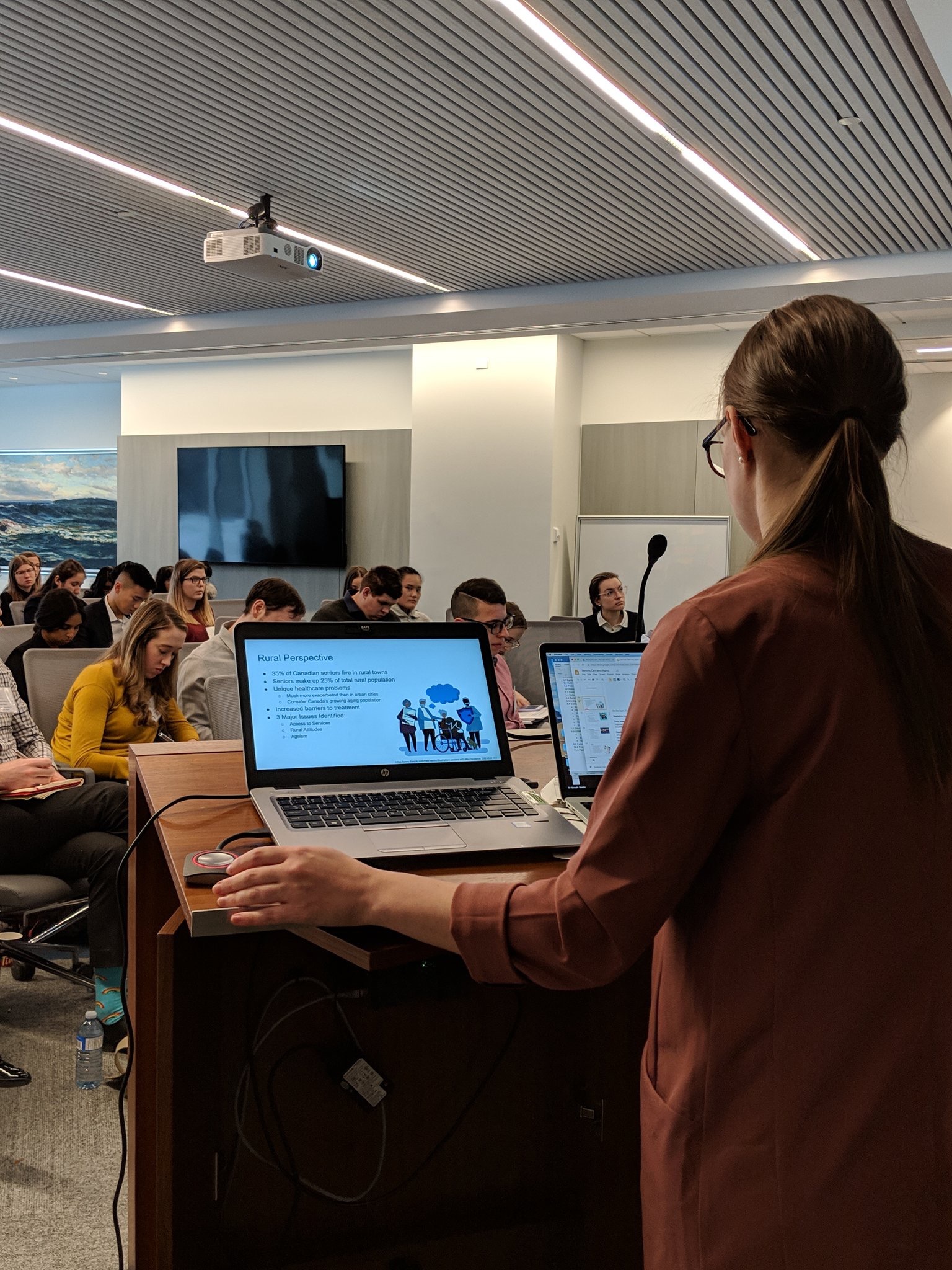
National Day of Action for Seniors Care and Aging: Behind the Scenes (Part 1)
Since the beginning of November, over a dozen medical students from across the country were working to prepare the research and documentation on seniors care and aging used for the Canadian Federation of Medical Students Day of Action, which took place on Feb. 4.
By Jessica FroehlichI am lucky to have been selected as the only Saskatchewan medical student on this research committee. It became an opportunity to engage in extensive consultations and planning, as well as learn more about the urgency of age policy reform and a National Seniors Strategy along the way.
The Canadian Institute for Health Information indicated in 2016 that the number of Canadians over 65 years will grow by 68% within the next 20 years. As well, in 2016 Statistics Canada reported that the population of seniors outnumbered children in Canada for the first time.
This is amazing news! Not only are people living longer, but a larger population of people are aging, and this means more wisdom, diversity, and know-how for communities to enjoy and benefit from. However, this also means that we need health systems and societies which are more accessible and senior-focused, and we must strategically be investing in home and community care supports as preventative medicine.
The Day of Action occurs each year, where medical students travel to Ottawa to meet with Parliamentarians and propose changes associated with evidence-based positive health outcomes.
In preparation for this, the research committee engaged in a mix of literature reviews and stakeholder consultations on the chosen topic. From late Friday night conferences calls with my colleagues, to reading Atul Gawande’s Being Mortal over Christmas break, diving head first into the topic was a great way to reflect on why seniors care and aging is important to me as a medical student, as a granddaughter, and as a citizen. I will take these thoughts and lessons with me to clinical practice in the years to come.
Though this work was difficult to balance alongside the intensities of medical school, it was a learning experience which proved to be extremely rewarding.
I had the opportunity to consult members of my community who are passionate and knowledgeable on topic of seniors care, as well as help conduct a qualitative analysis of consultations from across the country. In addition to the literature review we worked to compile, this created a foundation for the documentation used to educate students attending the Day of Action and meeting with Parliamentarians.
These community consultations proved to be invaluable and helped us to look at seniors care and aging beyond its clinical manifestations by listening to the stories of those with lived experiences who are dedicating their lives to this work. The opportunity offered a chance to practice collaborative efforts in health policy, as well as network with and be inspired by senior medical students from all over Canada and experienced professionals in seniors care.
It is an excellent opportunity to promote interest in health advocacy and politics among medical students. However, well before the Day of Action there is need for extensive research and consultations to identify what changes should be proposed, as well as the creation of documentation to provide students with a multifaceted understanding of the topic.
